|
When Canada’s Truth and Reconciliation Commission released its Calls to Action in 2015, it included a section called Media and Reconciliation. The Commission said one way to support reconciliation would be “to provide dedicated news coverage and online public information resources on issues of concern to Aboriginal peoples and all Canadians.” While that specific call to action was related to the federal government’s need to provide the CBC with sufficient funding to carry out that mandate, shouldn’t all news media in Canada strive to do the same thing?
Certainly that’s been one of the goals of The Conversation Canada since we launched almost three years ago. Vinita Srivastava, our Senior Culture and Society Editor, has led our team in working with Indigenous and non-Indigenous academics to produce stories in line with the objectives of that call to action. Just this week, five members of our editorial team worked with academics from Concordia University, the University of British Columbia and the Yellowhead Institute at Ryerson University to produce three stories on the ongoing conflict over the proposed Coastal GasLink pipeline on the territory of the Wet’suwet’en nation in northern
British Columbia. The Yellowhead Institute is a First Nation-led research centre that focuses on policies related to land and governance. One of the stories we published was by Yellowhead’s research director Shiri Pasternak, who explains how private agreements signed by First Nations and Coastal GasLink “can dramatically undermine First Nation rights and jurisdiction.”
For your weekend reading, I’ve assembled our recent stories about the controversial pipeline project, as well as a few other stories from our ongoing series on the Truth and Reconciliation Commission Calls to Action.
Regards,
|
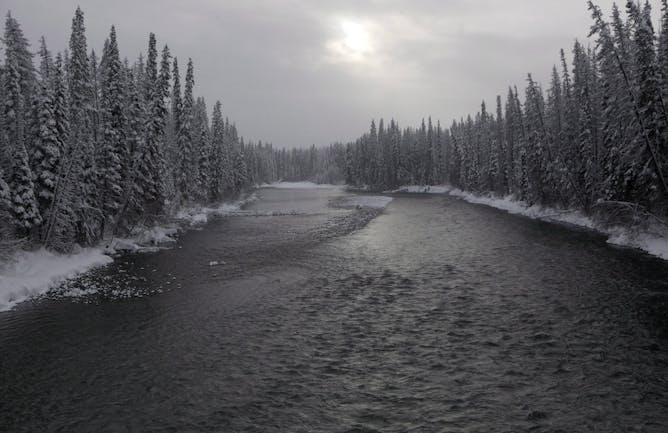
The Wedzin kwa River, an important source of fresh water for the Unist'ot'en and Wet'suwet'en people near Houston, B.C.
THE CANADIAN PRESS/Chad Hipolito
Shiri Pasternak, Ryerson University
Impact benefit agreements between energy companies and First Nations are typically confidential. But documents suggest First Nations may be trading away their Aboriginal rights.
|
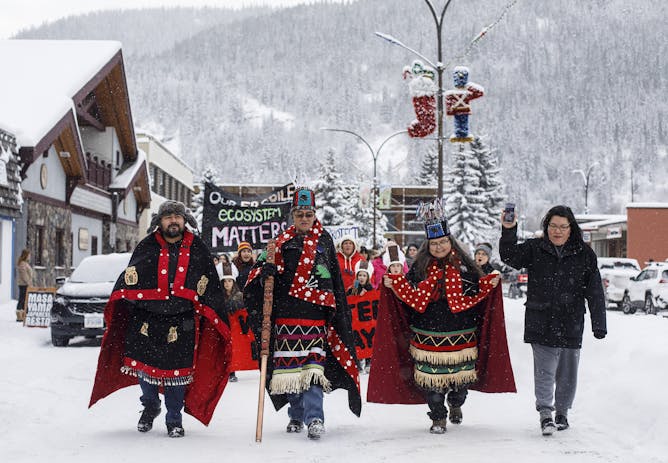
Wet'suwet'en hereditary chiefs from left, Rob Alfred, John Ridsdale and Antoinette Austin, take part in a rally in Smithers, B.C., in January 2020 against the Coastal GasLink project.
THE CANADIAN PRESS/Jason Franson
Stepan Wood, University of British Columbia; Gordon Christie, University of British Columbia; Jocelyn Stacey, University of British Columbia
Reconciliation cannot be achieved by the brute force of the RCMP or the self-interests of energy companies.
|
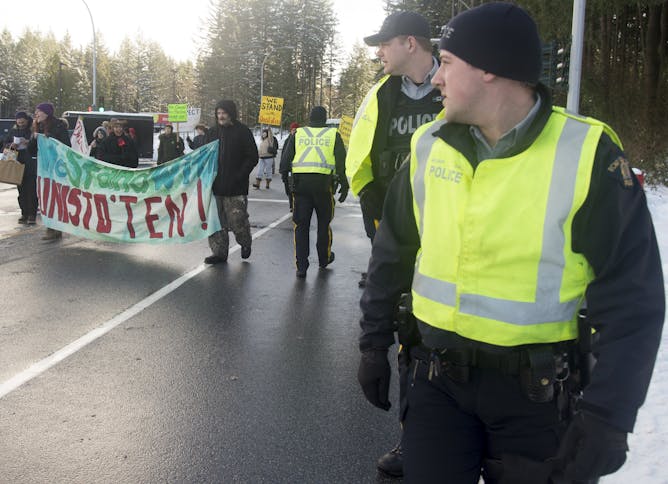
Members of the RCMP look on as supporters of the Wet'suwet'en Nation block a road outside of RCMP headquarters in Surrey, B.C., on Jan. 16, 2020.
THE CANADIAN PRESS/Jonathan Hayward
Catherine Richardson, Concordia University
The RCMP have long been responsible for violence against Indigenous people.
|
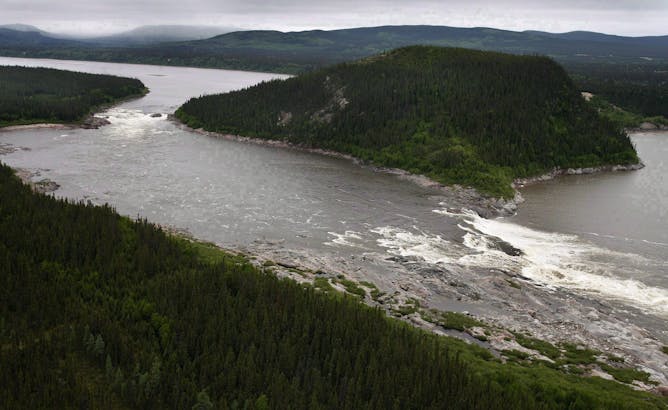
Muskrat Falls on the Churchill River in Labrador, in February 2011.
THE CANADIAN PRESS/Paul Daly
Chad Walker, University of Exeter
The mainstream news media has been biased in its reporting and portrayal of Indigenous Peoples on stories about renewable energy projects. What and how can they do better?
|
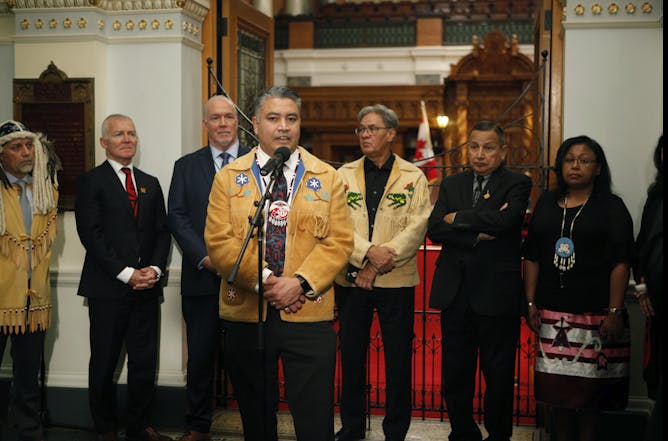
Regional Chief Terry Teegee speaks to the press n Victoria on Oct. 24, 2019 after Premier John Horgan announced Indigenous human rights will be recognized in B.C. with new legislation .
THE CANADIAN PRESS/Chad Hipolit
Sheryl Lightfoot, University of British Columbia
British Columbia recently introduced groundbreaking legislation to implement the rights of Indigenous Peoples. It’s impossible to overstate the importance of this historic achievement.
|
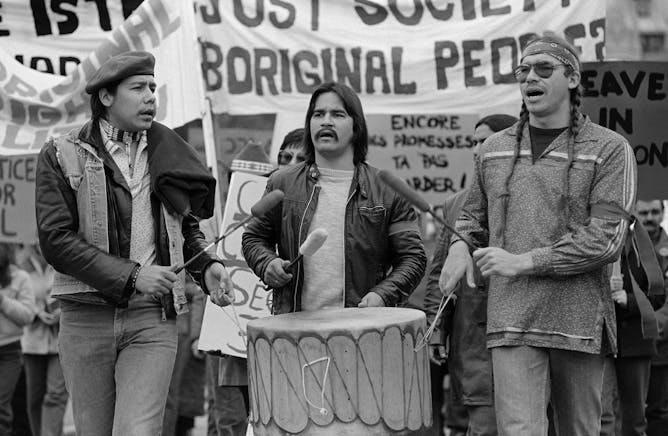
Apologies without clear policy shift are typically rejected as ‘empty gestures.’ Here, more than 100 Indigenous people march on Parliament Hill in 1981 to protest the elimination of Aboriginal rights in the proposed Canadian Constitution.
The Canadian Press/Carl Bigras
Sheryl Lightfoot, University of British Columbia
It's the 12th anniversary of the UN Declaration on the Rights of Indigenous Peoples. Canada has yet to implement this declaration even though the TRC says the road to reconciliation needs to start here.
|